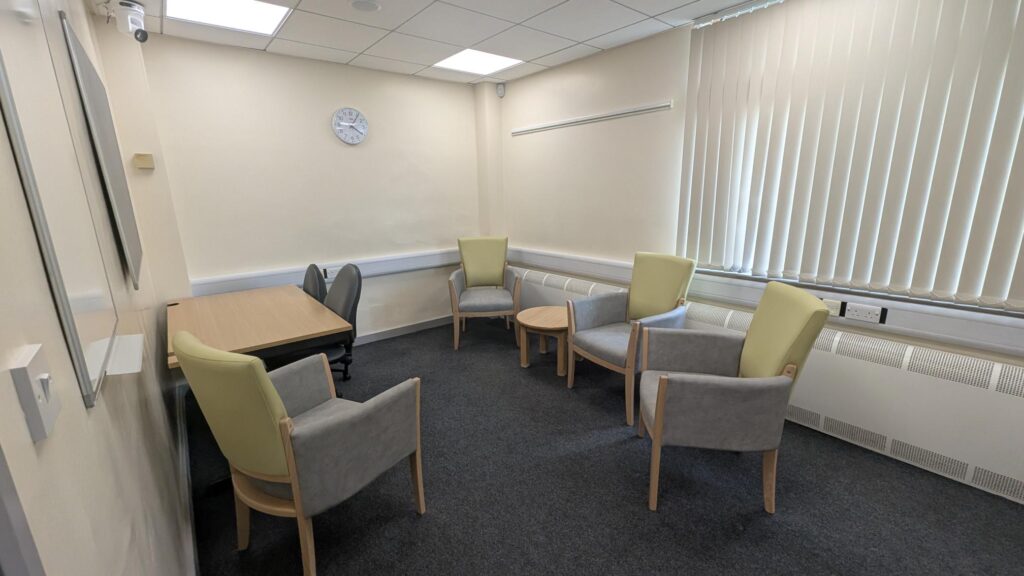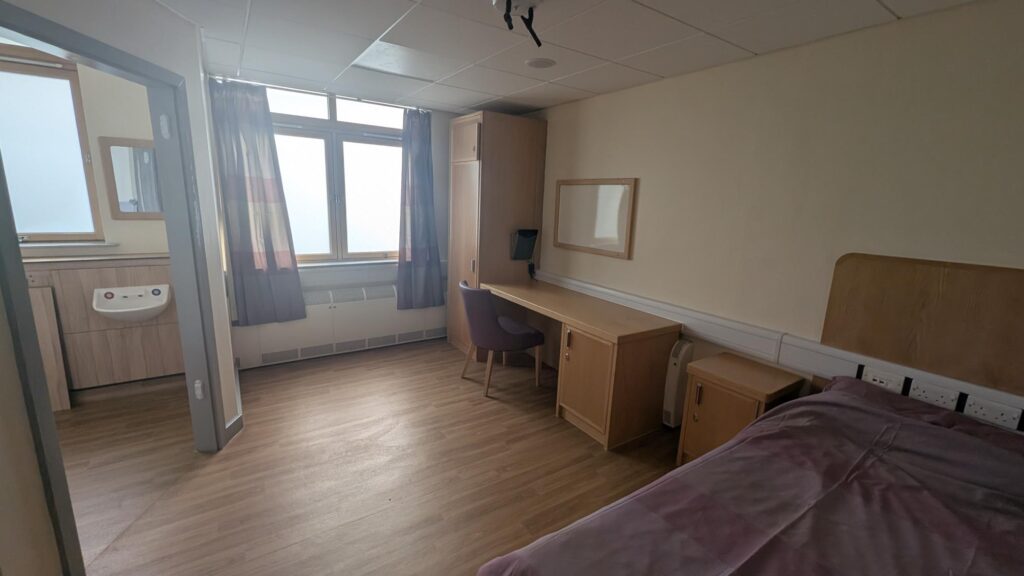Friday 11 July 2025
Today (Friday 11 July 2025), we officially opened our new, state-of-the-art simulation suite at Lanchester Road Hospital, Durham.
Dr Jim Boylan, who was previously our Director of Medical Education, cut the ribbon.
Our modern facilities will immerse university and career grade learners in realistic mental healthcare environments.
The idea is to offer a psychologically safe place to learn that is as close to reality as possible.
Learners will benefit from simulation technology
Thanks to the technology set up, rooms are equipped real time video and sound streaming.
The new simulation suite is made up of 4 multipurpose rooms:
- an outpatient clinic
- a bedroom
- a physical health clinic room
- a debriefing room.
There is also a control centre room which can oversee what is going on in the rooms.
We hope to build further simulation rooms in other locations across the trust.
We look forward to welcoming students soon.
Take a look inside the Lanchester Road Hospital simulation suite



Medical education with us
We provide high-quality medical education for medical students and doctors in training.
Find out more about medical careers and training